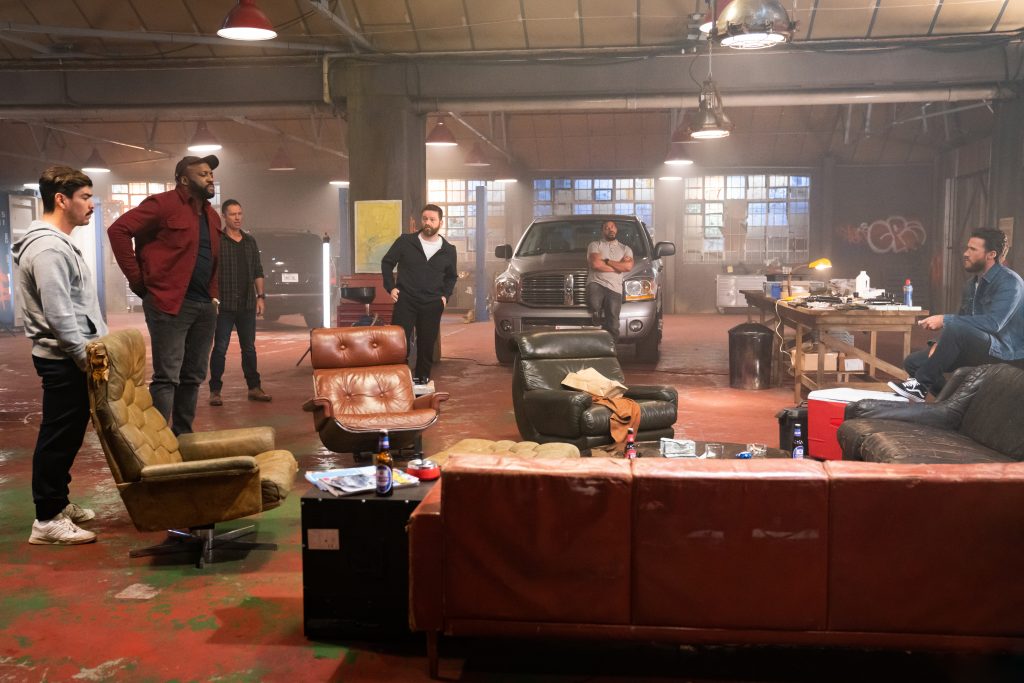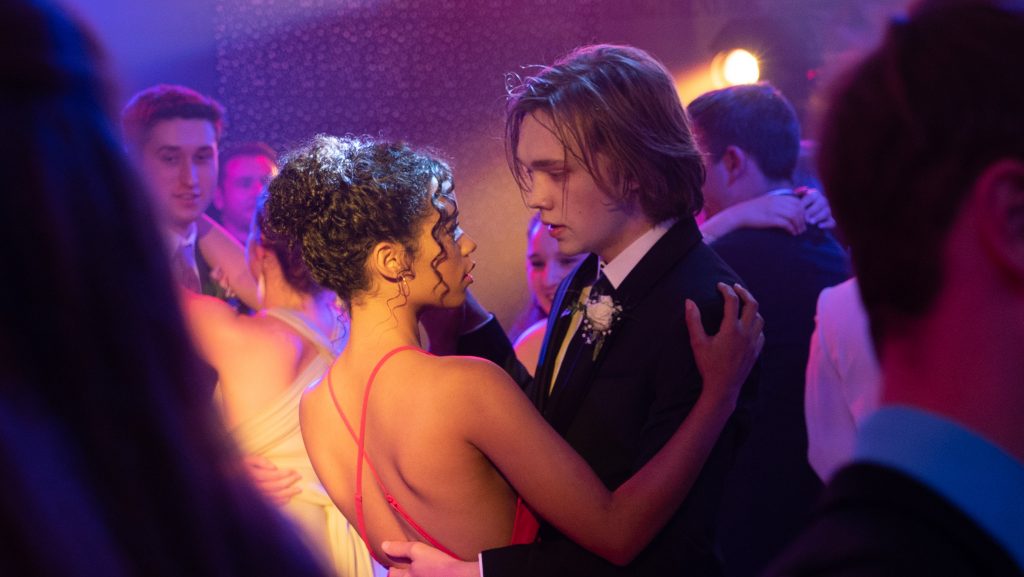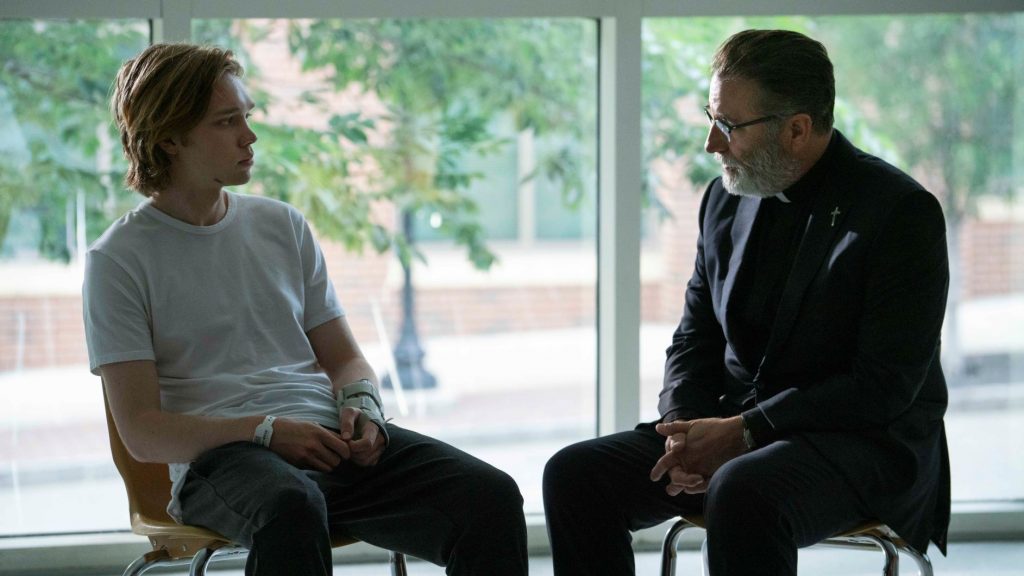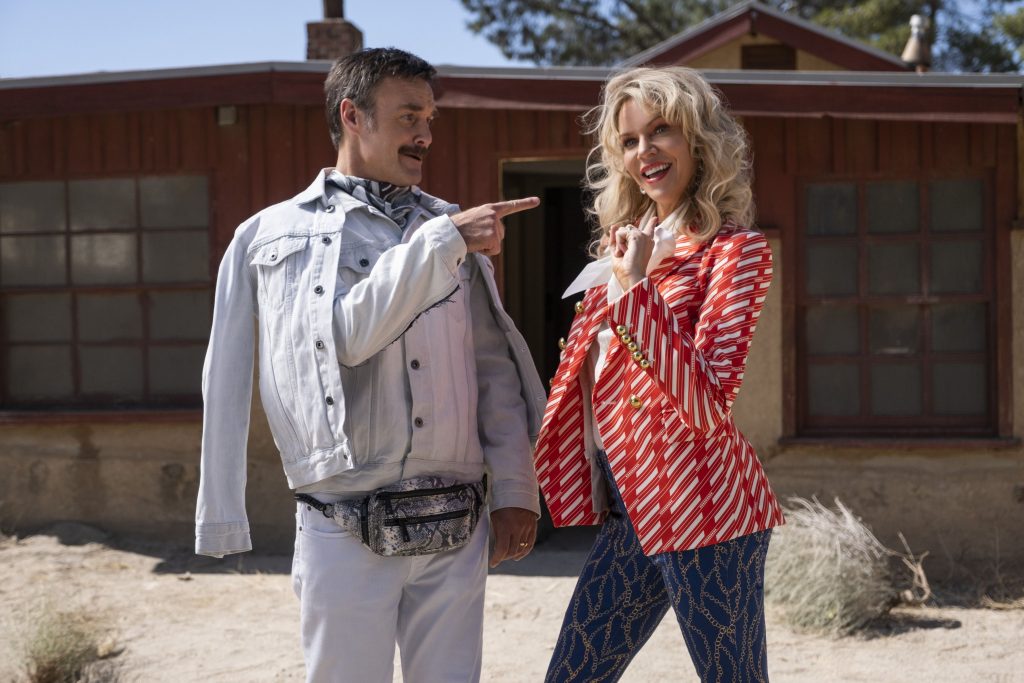May 8, 2023
by Carla Hay

Directed by Bill Holderman
Culture Representation: Taking place in Italy and briefly in the Los Angeles area in 2020 and 2021, the comedy film “Book Club: The Next Chapter” (a sequel to 2018’s “Book Club”) features a predominantly white cast of characters (with a few black people and Latinos) representing the working-class, middle-class and wealthy.
Culture Clash: Four elderly American women, who are best friends, travel to Italy to have a bachelorette party trip for one of the women who’s getting married, but they experience complications along the way.
Culture Audience: “Book Club: The Next Chapter” will appeal primarily to people who are fans of the movie’s stars, the first “Book Club” movie and comedies about how senior citizens experience love, friendships and romance.
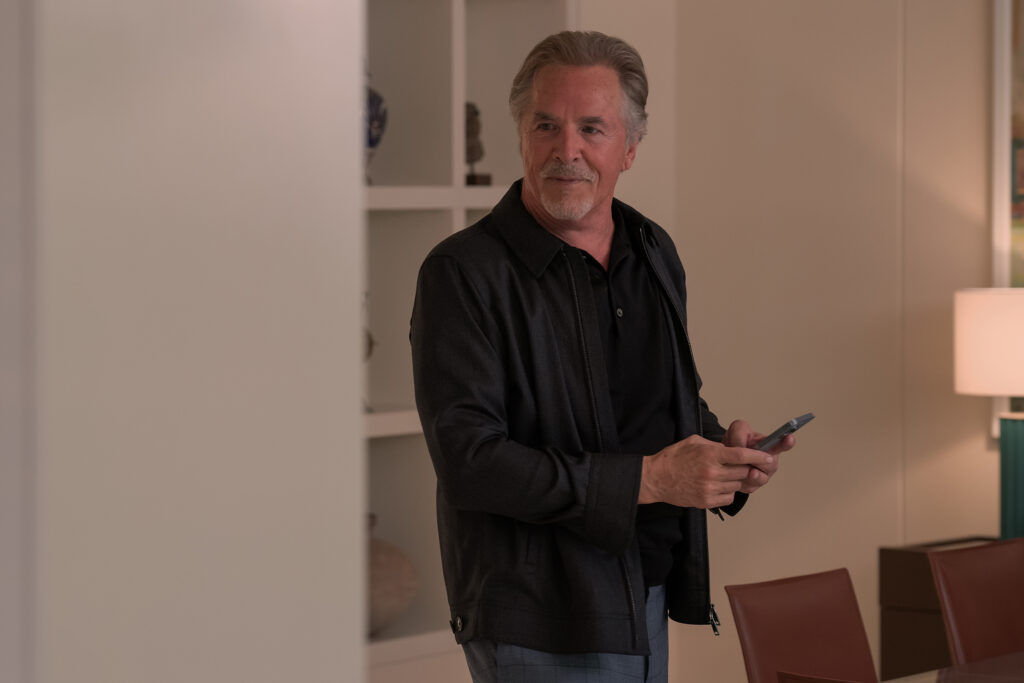
“Book Club: The Next Chapter” is a comedy sequel where the book club exists in name only. Instead of reading books, the four women who are the longtime best friends at the center of the movie are reading attitudes about love and marriage when they go from their homes in the Los Angeles area to Italy for a bachelorette party trip. “Book Club: The Next Chapter” is a sequel to 2018’s “Book Club.” This breezy sequel puts more emphasis on the four best friends spending time together as a group. The movie doubles down on the sexual double entendres that are sometimes amusing, sometimes tacky. “Book Club: The Next Chapter” has its heart in the right place though and should be entertaining for anyone who is a fan of any of the movie’s headliners.
“Book Club” and “Book Club: The Next Chapter” are both directed by Bill Holderman and written by Holderman and Erin Simms. It’s very helpful to see or know about what happened in “Book Club,” in order to fully enjoy and understand “Book Club: The Next Chapter.” The love relationship issues that each of the four main characters had in the first “Book Club” movie are not fully explained in the beginning of “Book Club: The Next Chapter,” which takes place in 2020 and 2021.
In the first “Book Club” movie, the four main characters are also the four members of a book club that they’ve had since 1974. (Erica Jong’s feminist novel “Fear of Flying” was the book club’s first selection.) As part of the book club, the women read E.L. James’ erotic “Fifty Shades” book series, which inspires them to spice up their love lives. In “Book Club: The Next Chapter,” the focus is on a bachelorette party trip to Italy for the woman in the group who has never been married. The expected hijinks ensue in Italy, including stolen luggage, language barriers, and one of the women finding a possible love interest in Italy.
The four women who are at the center of the story are as follows:
Diane Whittaker (played by Diane Keaton), the most neurotic and nervous of the four friends, is a widowed mother of two adult daughters and is the narrator of the “Book Club” movies. In the first “Book Club” movie, Diane met and fell in love with an airline pilot named Mitchell (played by Andy Garcia), who treats her with kindness and respect. In the first “Book Club” movie, Diane was hesitant to date Mitchell because she was still grieving over the death of her husband. But in Book Club: The Next Chapter,” Diane and Mitchell are still going strong in a happy relationship and are now living together.
Vivian O’Donnell (played by Jane Fonda), the most strong-willed and assertive of the four friends, is a high-powered hotel mogul, who is admittedly commitment-phobic because she’s afraid of losing her independence. She’s never been married and has no children. The love of Vivian’s life is a now-retired music producer named Arthur (played by Don Johnson), a charismatic suitor, who proposed marriage Vivian back in the late 1970s, but she declined the offer. In “Book Club” (mild spoiler alert), Arthur came back into Vivian’s life, and they rekindled their romance, but had a few predictable obstacles along the way. In the beginning of “Book Club: The Next Chapter,” Vivian tells her three best friends that she and Arthur are now engaged to be married. The four friends decide to go to Italy for a bachelorette party for Vivian.
Sharon Meyers (played by Candice Bergen), the most sarcastic and logical of the four friends, is a retired federal judge and a divorcée. Sharon got divorced from the father of her adult son sometime around the year 2000. In the first “Book Club” movie, Sharon was bitter because her ex-husband got engaged to a much younger woman, and Sharon’s son got engaged to a woman whom Sharon had never met. But in the first “Book Club” movie, Sharon decided to get back into the dating scene, and she eventually made peace with her ex-husband, whom she had dumped because Sharon thinks he’s intellectually inferior to her. In “Book Club: The Next Chapter,” Sharon is newly retired and is the only woman of the four friends who’s not in a committed relationship and isn’t dating anyone special.
Carol Colby (played by Mary Steenburgen), the most nurturing and sensitive of the four friends, is a restaurateur who has been in a longtime marriage to her retired husband Bruce (played by Craig T. Nelson), who can be emotionally distant but who is an overall loyal spouse. Bruce and Carol have three adult children together: two daughters and a son. In the first “Book Club” movie, Carol was distressed because Bruce had lost interest in having sex with her. It should come as no surprise that this issue was resolved by the end of the film. In the beginning of “Book Club: The Next Chapter,” Carol has closed her restaurant permanently, because the COVID-19 pandemic caused irreparable financial damage to the restaurant. Now a retiree, Carol has become preoccupied with worries about Bruce’s health, ever since he had a minor heart attack.
“Book Club: The Next Chapter” has several mentions and references to the COVID-19 pandemic. The movie’s opening scene, which takes place in 2020, shows the four pals speaking together in a videoconference call during the height of the quarantine lockdowns. When they finally reunite in person about a year later, they’ve all been fully vaccinated. Carol is the one who suggests taking the trip to Italy because the four friends had planned the trip years ago but kept delaying it. Carol thinks that Vivian’s engagement is the perfect reason to finally take this trip to Italy.
Carol might have another reason to want to go to Italy. Decades ago, when she was a single woman, she had a short-lived, hot romance with an Italian man named Gianni (played by Vincent Riotta), who was an aspiring chef when Carol knew him. She’s not interested in rekindling what they had, but Carol is curious to know about what Gianni looks like now and what he’s been doing with his life. What are the odds in a romantic comedy that Carol will see Gianni again?
As for Sharon, she’s keeping her options open when it comes to love and romance. And through a series of circumstances in Italy, Sharon meets a retired professor of philosophy named Ouzmane (played by Hugh Quarshie), who is charming and intelligent. In other words, he’s Sharon’s type of man. Will they or won’t they have a love connection?
“Book Club: The Next Chapter” has the expected corniness, such as the four women making jokes when they go to museums and look at statues of naked men, or mistaking a real police officer for being a male stripper. But the movie also has some serious moments, when the four pals talk about their fears of rejection and death. A catch phrase they use when they’re about to have a candid heart-to-heart conversation is “Best friend, tough love.”
Some of the platitudes are often trite though. During one of these “real talks,” Diane somewhat lectures Carol, who has become obsessively worried about leaving her husband Bruce home alone during this trip. Carol thinks that if anything goes wrong with his health again, she should be there for Bruce. Diane tells Carol: “You’re so afraid of Bruce dying, you’re afraid of living.”
Although the movie has some unrealistic-looking comedy, the main reason to watch “Book Club: The Next Chapter” is the lively banter between all four of these characters. The chemistry between Keaton, Fonda, Bergen and Steenburgen looks authentic in their portrayal of longtime friends. The direction of the movie is solid but not outstanding.
And if anything else, viewers can at least enjoy the gorgeous scenery, as the four friends travel to picturesque cities in Italy, such as Venice and Tuscany. The last third of the film has a few twists and turns, but nothing too surprising. If the purpose of “Book Club: The Next Chapter” is to show how women over the age of 65 can have vibrant and interesting lives, despite what is often inaccurately portrayed in the media, than the movie fulfills that purpose.
Focus Features will release “Book Club: The Next Chapter” in U.S. cinemas on May 12, 2023. A sneak preview of the movie was held at select U.S. cinemas on May 7, 2023.


